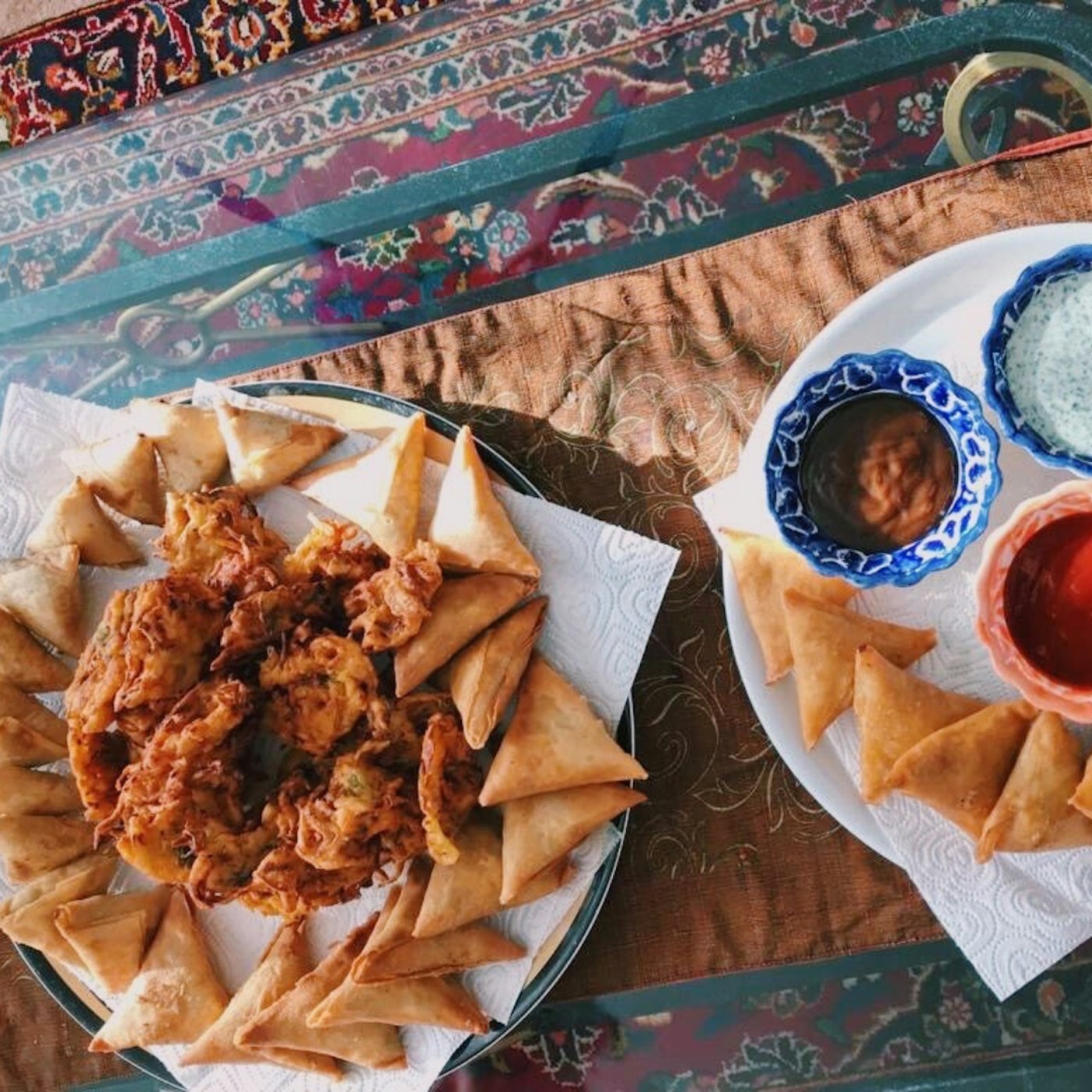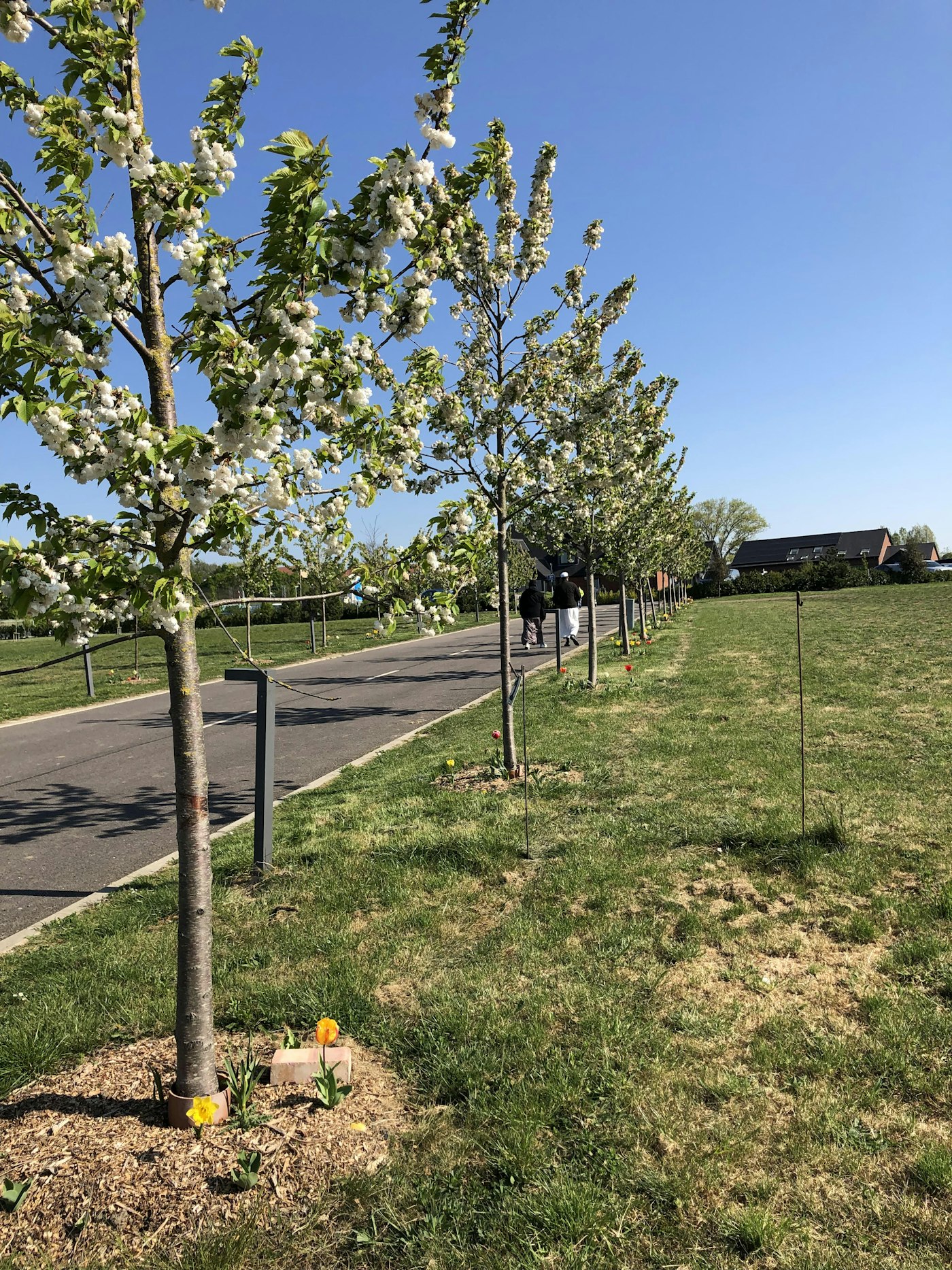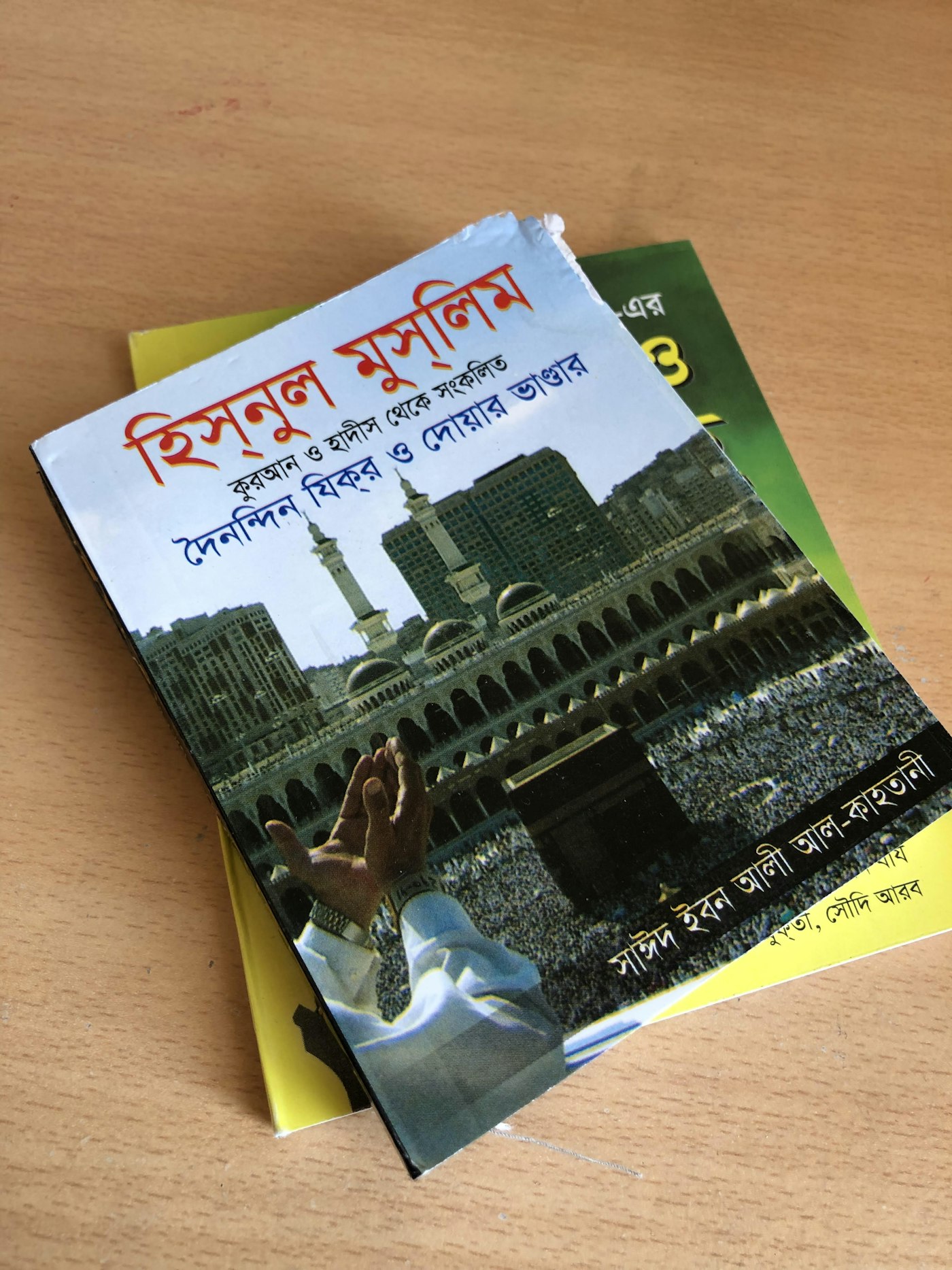What’s in a Samosa? Losing Our Dad to Covid and Navigating Our First Ramadan Without Him
by Nafia Guljar in Ramadan on 6th April, 2022

This is our first Ramadan without our dad, and samosas. My dad was an extraordinarily good person, who led a simple life that had been full of sacrifices and selflessness. He was the absolute best dad we could have possibly hoped for. He passed away on Sunday 19th April, after a month-long fight against COVID-19. He fought extremely valiantly after being sedated and intubated on a ventilator. He battled against pneumonia, multiple infections, extremely severe thrombocytopenia and sepsis. We got called to the hospital on two consecutive days as the doctors thought he would pass away in the space of a few hours. We went to the hospital, got to be by his side in full PPE, and prayed non-stop. Both days he carried on fighting and the doctors and nurses were astounded. Even though he had been sedated for almost a month, I like to think that he felt our presence and love by his side.
As the eldest child in our family of five, I had been on autopilot from the day my dad was hospitalised (Monday 23rd March) until the day his on-call consultant called me to say that my dad had passed away. Wake up, anxiously wait for the consultant to call us with our daily update between 2–3 pm, fully understand and note down all the changes, update our extended family in the UK and Bangladesh about my dad, and pray continuously that there’d be no other phone calls until the next update. Rinse and repeat.
I had been careful not to cry too much or show how terrified I was in front of my mum and younger siblings, because I didn’t want to distress them, but this has been the hardest time of our lives.
In the end though, his passing reflected his character and was extremely peaceful. His janazah and burial was three days later, on a beautiful sunny day, in strange circumstances. The ongoing pandemic meant that we were only permitted to have five people attend the janazah. My brother and other male family members could not perform the ghusl or shroud my dad in the kaffan, nor could we see his lovely face one last time. In spite of all this, we found some peace as a family after we had laid my dad to rest, finding solace in each other and in prayer.

Two days later it was Ramadan, and a sadness I have never ever felt before took hold of me and weighed my heart down until I literally cried out from the pain. Ramadan is our favourite month of the year. Our parents always made sure it was extremely special, and the prospect of having to navigate our first Ramadan without our dad was almost too much to bear.
Everything was a gut-wrenching reminder of his absence, but also of his love and care for us.
During this period of lockdown, quarantine and social distancing, I have been able to reconnect with my faith more deeply, and reflect on the ways in which my dad taught us life lessons during Ramadan and beyond, through his actions and our family traditions.
Typical of many desi parents, my dad wasn’t an “I love you” type of man. Yet we have always, without a shadow of a doubt, felt his love, especially during Ramadan. You see, my dad’s main love language was feeding people. We were infinitely grateful for the opportunity to strengthen our iman during the month, but also to eat food together every day, as well as with our extended family at lively iftar parties. My dad adored and was a big advocate for communal eating, never more so than in Ramadan. As a Bengali family, there are some staple foods that we have always eaten during Ramadan for both iftar and sehri. For iftar, this includes kisuri (a rice and lentil porridge type dish), sana biran (chickpeas), dayler bora (lentil fritters) and Ribena, always Ribena. For sehri, it was always aam, doodh, baath (mango, milk, rice). These were the comforts of my parent’s childhood and they became the comfort of ours.
And don’t get me started on the fruits! My dad’s absolute favourite way of showing us how much he cared was through filling our kitchen with seasonal fruits. The fruits simply tripled in quantity and variety during Ramadan. In the summer, that meant boxes upon boxes of mangoes, perfectly ripe watermelon, pineapple, papaya and countless jackfruit. I can still see my dad happily walking up our garden path, pulling his shopping trolley behind him after a trip to Whitechapel, a huge jackfruit sitting inside. He would wait for it to ripen at home, insisting that it was a precise science and he knew what he was doing, and he actually got it bang on most of the time. I get a pang of sadness every time I look at that trolley, knowing that I’ll never see my dad walking with it again.

These staples and the routine of preparing them every Ramadan was something we probably took for granted. I appreciate our parents making this a family affair—we all got stuck in so that one person wasn’t left exhausted after a long day of fasting, something I’m grateful to our parents for instilling in us. My mum would prepare the few main dishes and my dad and I would prepare a selection of extras, whatever any of us fancied that day—anything from chicken wings to begunis (battered aubergine)—and slice up all the fruits. My brother and sister would lay the table and dad would serve us a bit of everything plus two dates for him because he loved them. He would make up his Ribena, filling the glass halfway with Ribena and topping up with water until it was still an opaque purple colour, and we would all sit together with Sunrise Radio or Channel S on, waiting for the adhan. His eyes were inevitably always bigger than his belly and he would be defeated halfway through. Since we were old enough to pray Taraweeh, he always encouraged us to eat light at iftar, so that we wouldn’t feel sluggish and we’d be able to pray all 20 rakat. He would remind us that the food would be waiting for us on our return and we should do our best to maximise our rewards during prayer. Somehow, and I suspect it was on purpose, he would always have something that each of us loved left over on his plate . He would offer it to us, often feeding us lovingly with his own hand, which is a sign of affection in our culture, and always reminds me of when we were children or ill. Dad would not take no for an answer, no matter how much we protested—a samosa for my little brother, a chicken wing for my sister, some papaya for me, a dayler bora for my mum. It might sound silly, but that’s the kind of man my dad was: he’d give you the shirt off of his back and the food off of his plate, always showing us the importance of generosity and sharing what you have.
However, the Ramadan tradition I’ve missed the most has been making samosas with my dad. This had become our little ritual since he taught me how to make them over fifteen years ago, and no one else in our family knows how to make them. We’d always make a batch just before Ramadan and another just before Eid. Always together, as he said two pairs of hands are quicker than one. My mum or I would cook the filling, usually lamb or chicken mince, potatoes and peas. Once the mixture cooled, my dad would do all the prep, as he knew that I didn’t like doing it, but truth be told, he was just better at it than I ever was. The prep included painstakingly removing all the whole spices from the filling mixture (no one wants to bite down on an elachi), cutting the pastry into thirds and making the glue (mix flour and warm water into a thick paste and make sure there are no lumps). He would then bring everything to the dining table, along with a huge tray for the finished samosas, then we’d put on a film or documentary and we’d get started.
He taught me the correct way to fold the pastry (always two layers thick) so that the samosas end up being a perfect equilateral triangle rather than an isosceles or, god forbid, a scalene! He taught me to never overfill the samosas, otherwise, there would be gaps in the corners, through which oil would get in during the frying process and make the samosas greasy. There were years early on where I couldn’t get the hang of making them exactly like him, sometimes throwing a tantrum, and not once did he ever lose his patience or get irritated. On the contrary, he would be full of praise and encouragement, quietly fixing my botched samosas, filling in the gaps after I’d given up and left and glueing down any flyaway flaps. Once finished, he’d always clear and wipe down the table and gave me the easy job of putting the finished samosas in the freezer in batches. Unfortunately, we didn’t have any left in the freezer, and dad becoming ill meant that we didn’t get to do our Ramadan prep for this year, something I really regret. It really hurts to think the next time I sit down to make them, my dad won’t be there to help.
The older and busier we got, the less we wanted to eat the usual Ramadan foods and the less invested we were in carrying on our usual traditions. Iftars became healthier, as my siblings and I didn’t want to eat fried food and so many carbs late at night. Sehri became a quick bowl of cereal or some toast, as we had jobs and uni to get up for in the morning. In hindsight, I regret not making more of an effort in the last few years during Ramadan. Although my parents understood, it fills me with sadness to think of them eating sehri alone together during the week, and I wish I’d eaten a few more meals at sehri with them. All those little Ramadan customs, my dad’s caring little idiosyncrasies, his generous spirit and the loving moments we had as a family preparing food, breaking fast together, moments we had nurtured over the course of our lives, that was home for us. Now that a huge part of our home is no longer here, we have to treasure them more than ever.
We haven’t had the heart nor the energy to go all out this Ramadan like we used to; it feels as though we’ve just been going through the motions. The samosas didn’t get made for the first time in 15 years, and the Ribena stays unopened because it just hurts too much to think about drinking it without our lovely dad. Next year we’ll do it all, inshaAllah. When it hurts a little less.
So, what’s in a samosa? My father’s immense love for us, his patience, his care, his infinite kindness, his generosity, his wisdom, his steadfastness, his iman, the family values he instilled in us, the lessons he taught us, and a small, but incredibly significant, part of his huge legacy.
Click the link below to hear Nafia read out her article for the #amaliahanthologyseries over on the Amaliah Podcast. Check out all of our previous episodes there too! You can stream the Amaliah Podcast over on Acast, Spotify, Apple Podcasts and wherever else you get your podcasts!
Nafia Guljar
Nafia Guljar is a cancer research scientist and a self-taught (very occasional) illustrator. She has a keen interest in fragrances and explores this through watercolour illustrations over on Instagram @anillustratednose. She also tweets over @nafia_g